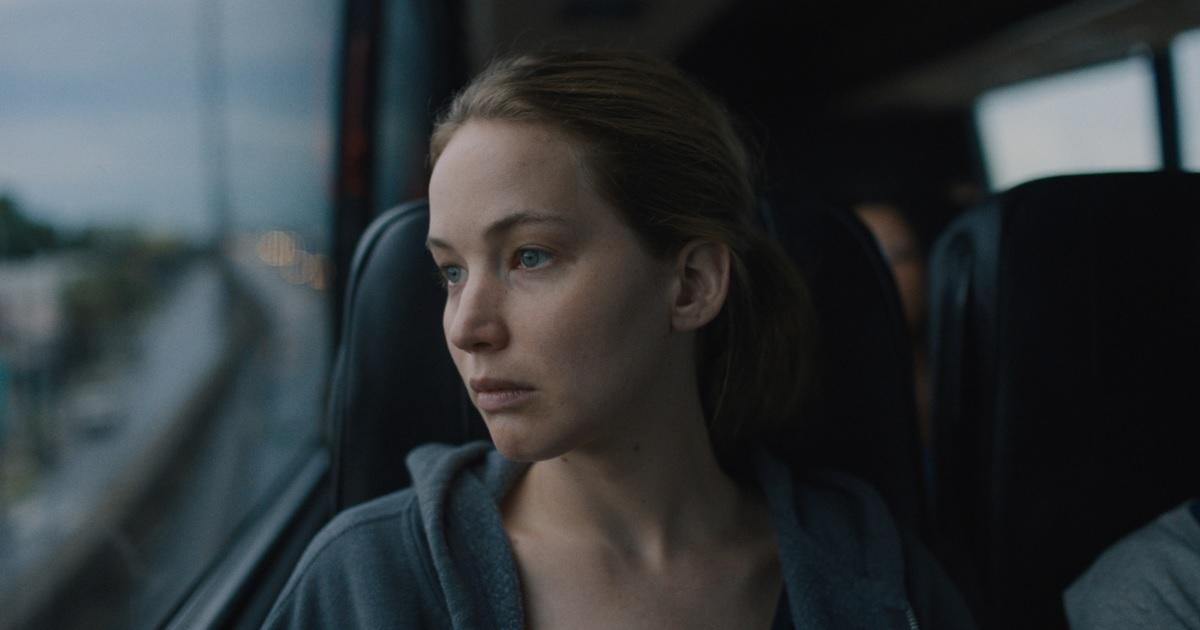'Causeway': Jennifer Lawrence Returns to Acting Roots With Powerful Returning Veteran Story (Review)
Jennifer Lawrence needed a back-to-basics project to revive the talent that shined so brightly in Winter's Bone. Her newest film, Causeway, is that effort. This simple and powerful portrait of a returning veteran adjusting to life at home in New Orleans is the perfect vehicle to bring out the best in Lawrence. It also features a stunning turn from Brian Tyree Henry, whose natural ease in front of the camera is challenged only by his co-star.
Causeway stars Lawrence as Lynsey, a member of the U.S. Army Corps of Engineers who survived a brain injury suffered during an IED attack in Afghanistan. After time in rehab, Lynsey rushes back to New Orleans, only to grow frustrated by her mother Gloria (Linda Edmond). When her truck breaks down, she meets mechanic James (Henry), and they strike up a surprising friendship, connecting through their traumas.

Director Lila Neugebauer harnessed her stage experience to make Causeway as intimate an experience as a film can be. She pulls out an effective performance from Lawrence that reminds us that acting naturally while a camera captures every movement is incredibly difficult. There are moments where Neugebauer and cinematographer Diego Garcia simply let the camera sit and watch Lawrence silently take in her uncomfortable surroundings.
One of Lawrence's best moments in the film is her long monologue explaining her injury in concise and graphic detail to her doctor (Stephen McKinley Henderson). The camera never leaves her face, only slowly moving closer. She's not talking just to her doctor there. You can feel that part of Lawrence's performance is for the audience's benefit. It is as uncomfortable as it would be if we were really in that doctor's office. But it's too important to look away. It's so important to see Lynsey's face that Neugebauer would do an injustice to show a genuine explosive flashback.
Where most films might go the easy route and try to squeeze in romance, the script by Elizabeth Saunders, Luke Goebel, and Ottessa Moshfegh chooses to go a different route. They instead chose to show how important adult friendships can be, especially as an anchor when one feels adrift. James becomes friends with Lynsey, but the character exists to do far more than just make Lynsey feel better about herself. Henry is too good to let his character simply offer advice. The push-and-pull between the two stars is magnificent to watch because so much of it happens without big actions. Much of the film is simply the two talking about their flawed lives, to the point that we need to hang onto each word because one of them might just light a spark.
At times, the script doesn't really go as deep as it could, though. It might have helped to learn a little more about Lynsey's troubled family history to truly understand why she was so desperate to get out of New Orleans. The movie is so focused on Lynsey and James that we don't see much of their orbit outside one another. In fact, we don't see anyone from James' life.
Causeway is a subdued, quiet movie. It's a character portrait that doesn't show many of the defining events that shape Lynsey's and James' lives. The performances are not flashy or bombastic, but subtle and realistic. No fireworks go off when Lynsey realizes that running away from home and pushing away all those close to you is not healthy. The film might lack in detail, but Lawrence and Henry's performances do the heavy lifting here, and few others can do it like them.
Causeway is available to stream on Apple TV+ on Nov. 4. The film also received a limited theatrical release.
0comments